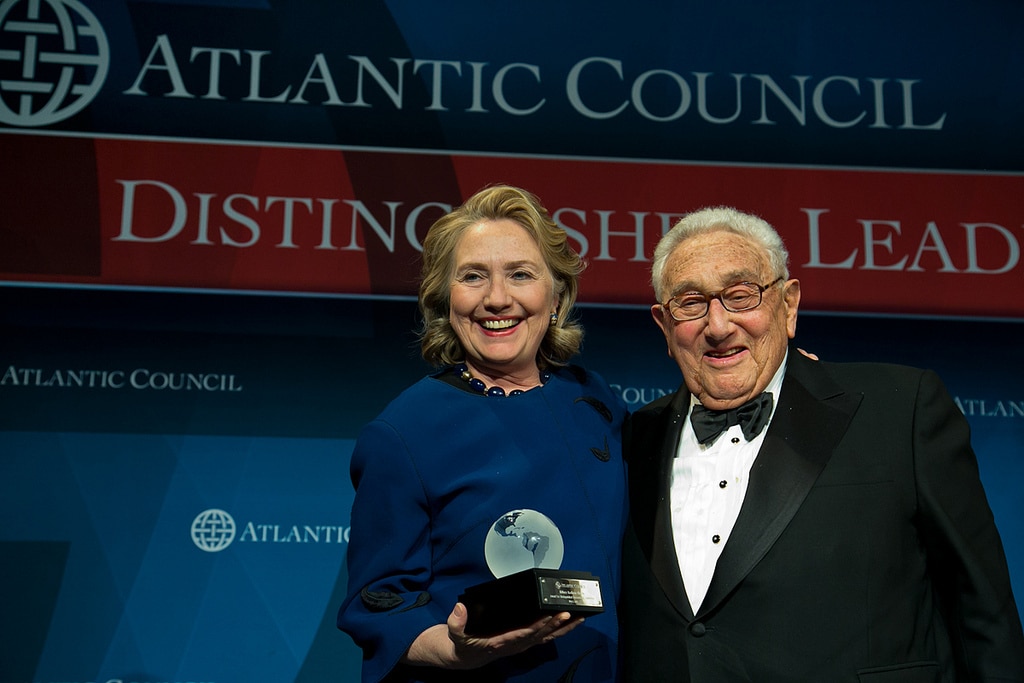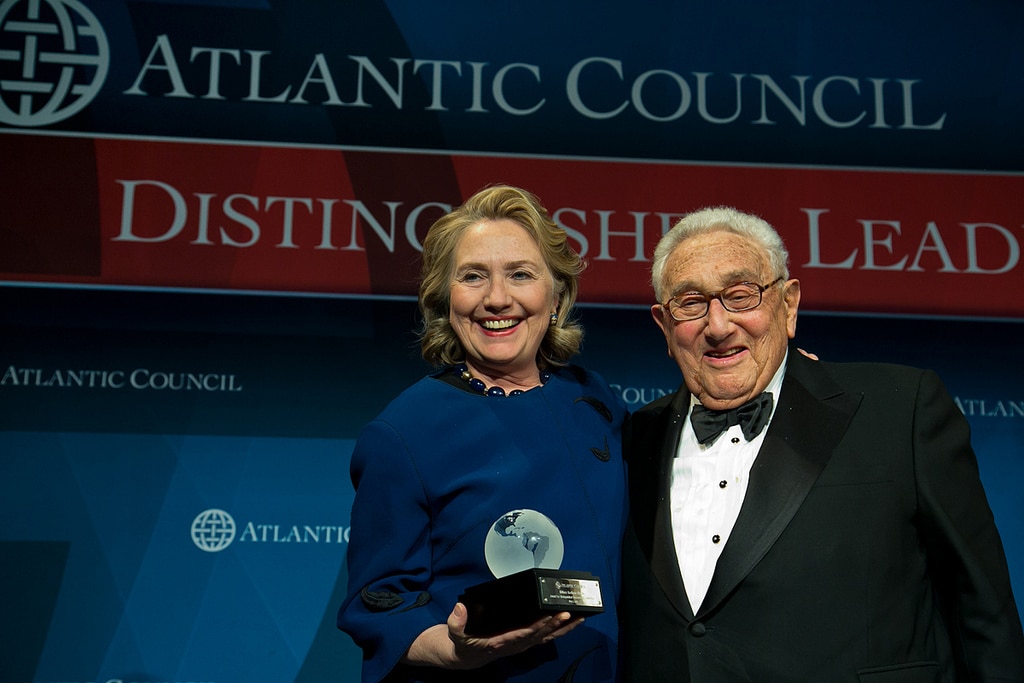Sources are everything to a journalist. Without them, their stories would be hollow. Imagine there was a ready-made list of experts always willing to bring that crucial air of credibility to any story about…Russia, for example.
Well, it turns out there is — and that list can be found on the website of the Atlantic Council — a think tank well-known for its ceaseless and enormous hostility toward Russia. Wherever there is an opportunity to throw balance and fairness to the wind in a story concerning Russia, an Atlantic Council analyst will always show up to lend a hand.
You see, experts and analysts bring the believability and legitimacy to a story; if the expert said it, that must count for something, is the general theory. These ‘experts’ provide journalists with insight into the issues and places they report on — so a journalist covering, say, Eastern Europe and Russia would make it their business to cultivate a list of people who know a little something about that region’s political, economic, social and cultural landscape who they can then approach for analysis on various stories and topics. Usually, it’s a good idea, too, to take these experts from a broad spectrum of society and political thought, so that readers are given a well-rounded and balanced view of a particular issue.
Or, you could scrap all that and just choose from the same pool of people who think exactly the same way — in this case, the Atlantic Council — over and over again. Much handier…and sure, who’s going to notice, anyway? That seems to be the modus operandi for a number of journalists on the Russia beat. Atlantic Council “analysis” is prevalent across the entire Russia-focused Western media, but Newsweek seems to have a particular problem with over-reliance on the US-government and arms manufacturer-funded think tank.
First, let’s look at a recent story about a top Russian official who claimed “without evidence” that the Ukrainian government supports and is supported by far-right groups — and that the United States has turned a blind eye to neo-Nazism in Ukraine.
The report’s author, Cristina Maza, quoted Nikolai Patrushev, the head of Russia’s Security Council and former head of the FSB in an interview with Russian newspaper Rossiyskaya Gazeta, saying that Nazi symbolism, rhetoric of ethnic superiority and Russophobic ideas had become “an integral part of Kiev’s state policy” and accusing Washington of “closing its eyes” to the links between Ukrainian President Petro Poroshenko and far-right groups in the country.
In an effort to debunk those claims, Maza asked two experts — and the experts told her that this is not true; that it is just “misleading” propaganda “in line with the Kremlin’s efforts to spread misinformation.” You won’t be surprised to learn that the experts in question both work for the Atlantic Council.
“Poroshenko gets no benefit from far-right activities in Ukraine, which are minimal,” former US ambassador to Ukraine, John Herbst, who now heads the Atlantic Council’s Eurasia Center, tells Maza. In fact, “right-wing extremism is quite weak in Ukraine,” according to Herbst. Ukrainian writer Maxim Eristavi tells Maza that there is indeed far-right activity in Ukraine, but that Poroshenko himself is the “last person” in the government who would have any links to that kind of thing. What a coincidence, Eristavi is also an Atlantic Council expert — or a ‘nonresident senior fellow’ to be exact. But Newsweek didn’t see fit to inform its readers that both of the experts cited work for the same think tank which is notoriously hostile to Russia.
Unfortunately, many a reader of publications like Newsweek won’t know just how partisan and ideologically-driven this think tank and its esteemed experts actually are. For the general interest reader, if experts providing comment and analysis have authoritative sounding titles like “resident senior fellow” and “distinguished fellow” they will sound sufficiently scholarly and trustworthy on paper.
So, having put to bed any notions that Poroshenko himself might be ignoring or tacitly condoning neo-Nazism in Ukraine, the story quickly pivots to ties between American and Russian far-right groups. The story then wraps up by admitting that in fact yes, far-right groups in Ukraine (the notorious Azov battalion, for example) do receive support from American white supremacist groups and that members of the Ukrainian government do indeed have close links to the far-right.
It’s at this juncture, that it becomes clear that entire point of the story was to cleanse the pro-US Poroshenko personally of any unhelpful ideas about how his government turns a blind eye to dangerous far-right nationalism in the run-up to the country’s presidential election in March. We couldn’t have readers thinking that Washington or one of its so-called European allies was using far-right nationalism and white supremacy to its advantage, now, could we?
Unfortunately for Newsweek, however, the growing problem of untackled neo-Nazism and its links to Ukrainian government figures has been well-known for quite a while. Earlier this year, 50 members of the US Congress wrote to the US Deputy Secretary of State worrying that new Ukrainian legislation “glorifies Nazi collaborators” of World War II and that much of the glorification of Nazis in Ukraine was “government-supported.” Around the same time, the BBC aired a program highlighting the links between far-right militias and the Ukrainian Interior Ministry. Now, last time I checked, Poroshenko was the president, which makes Newsweek’s effort to absolve him of any responsibility quite a bit of a head-scratcher.
This is not just a one-off case of Atlantic-Council-heavy sourcing, however. Curious readers of the Newsweek story might want to learn a bit more about Ukraine and, helpfully, there is a link to another article by the same author included in the text. In that story, readers were told that Russia might be preparing to launch a military attack on Ukraine over the Christmas period.
Here, the Atlantic Council’s Herbst appears again, informing readers that Russia “likes to commit aggression when the world is not paying attention.” The second expert cited in the article is Michael Carpenter, a former US deputy assistant secretary of defense, who offers Newsweek readers a military perspective and explains that Ukraine would not be prepared for a standoff with Russia. Carpenter, you guessed it, also happens to be a “nonresident senior fellow” at the Atlantic Council’s Eurasia Center, the same one headed by Herbst. Later in the story, another expert pops in to suggest that during this alleged upcoming offensive, Russia might be aiming to go “all the way to the borders of Moldova.” That expert is Ariel Cohen, a senior fellow at, wait for it…the Atlantic Council. Probably just a coincidence, right?
In September, Maza reported on claims from Moscow that Ukraine’s intelligence services had collaborated with Islamic State fighters. Ex-ambassador Herbst was there, as ever, to tell Newsweek that this was all just “Kremlin propaganda.” This time he was joined by Daniel Vajdich, another “nonresident senior fellow” at the Atlantic Council, who said essentially the same thing. If Maza had ventured away from her old reliables at the Atlantic Council, she might have found information on the Ukraine-linked jihadists who later told the UK Times that they trained at Islamic State camps.
In June, Newsweek reported on rising anti-Semitism in Ukraine after the country’s chief military prosecutor, Anatolii Matios, said that Jews wanted to drown ethnic Slavs in blood. Sounds bad, right? Well, not to worry, Atlantic Council analyst Adrian Karatnycky, (yet another “nonresident senior fellow” and the only expert cited in the story) was there to assure Maza and her Western audience that while there is a problem of antisemitism and vigilantism in Ukrainian society, “in general, the Ukrainian government acts to defend minorities from physical attack.”
To be clear, the Atlantic Council is essentially a PR offshoot of NATO which has filled its ranks with fanatical anti-Russia hawks from across the US and British political and media landscapes, while masquerading as a neutral source of expertise and analysis. It is funded not only by the US and UK governments, but also a bevy of arms manufacturers including Raytheon, Lockheed Martin, Boeing and Northrop Grumman — who clearly benefit from heightened tensions with Russia.
There is nothing even-handed or balanced about the Atlantic Council — and for Newsweek to act, with such regularity, like it is a dispassionate and neutral source of opinion when it comes to Russia and Ukraine, is an insult to its readers’ intelligence.
Reprinted with permission from RT.



